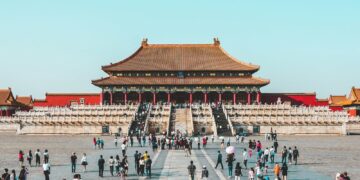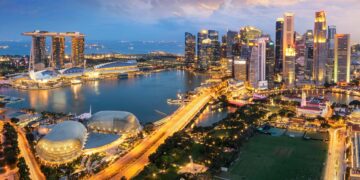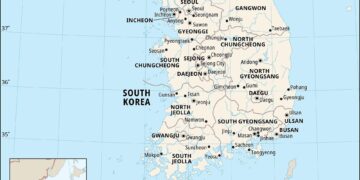Iraq Debuts 2-Megawatt Solar Power Facility at Government Palace, Accelerating Renewable Energy Transition
Iraq has made a notable advancement in its pursuit of sustainable energy by unveiling a new 2-megawatt solar power installation at the Government Palace in Baghdad. This project capitalizes on Iraq’s plentiful sunlight, marking a transformative milestone in the country’s strategy to diversify its energy mix and lessen dependence on fossil fuels. Beyond supplying clean electricity to government operations, this solar plant embodies Iraq’s dedication to adopting renewable technologies amid growing environmental and economic pressures. As the nation modernizes its infrastructure and strengthens energy security, this initiative is expected to catalyze further investments in green energy across Iraq.
Iraq’s Solar Initiative Boosts Energy Autonomy and Sustainability
In an effort to fortify its energy framework, Iraq has launched a 2-megawatt solar power station situated at the heart of governmental operations—the Government Palace. This development forms part of a comprehensive national plan aimed at curbing reliance on imported fossil fuels while promoting renewable alternatives that are both cleaner and more sustainable. The facility is projected to contribute significantly to the national electricity grid by providing eco-friendly power for official use.
Government officials emphasize that this project not only enhances self-sufficiency but also serves as an inspiring example for future renewable ventures throughout Iraq. The inauguration highlights several key advantages:
- Lower Carbon Emissions: Harnessing solar power reduces greenhouse gases contributing to climate change.
- Employment Opportunities: Construction and ongoing maintenance create jobs within local communities.
- Diversified Energy Portfolio: Incorporating renewables stabilizes supply chains and mitigates market volatility.
The Iraqi government plans expansive rollouts of similar projects nationwide, aiming to build a robust network of renewable installations that will underpin future economic growth while enhancing environmental stewardship.
Government Palace Solar Project Pioneers Clean Energy Infrastructure
The commissioning of this 2-megawatt photovoltaic system represents one of Iraq’s first major steps toward integrating large-scale clean technology into critical infrastructure. Designed specifically for governmental needs, it sets an important precedent for replicable models across public institutions seeking sustainable solutions.
This cutting-edge facility not only supplies green electricity but also stimulates economic benefits through job creation during both construction phases and ongoing operational support roles within the renewable sector. Key objectives driving this initiative include:
- Energy Sovereignty: Minimizing imports by generating domestic clean power sources.
- Sustainable Employment: Developing skilled labor markets focused on emerging green technologies.
- Ecosystem Preservation: Reducing air pollution levels through decreased fossil fuel consumption.
The success here is anticipated to inspire replication across other government buildings nationwide—potentially positioning Iraq as an emerging leader in Middle Eastern clean energy adoption amid regional efforts toward decarbonization.
Enhancing Renewable Energy Adoption Through Strategic Policies
A holistic approach is essential for maximizing renewables’ role within Iraq’s broader energy landscape. Central strategies include implementing targeted incentives designed to attract private sector investment into solar farms and wind projects alike—fostering public-private partnerships crucial for scaling up capacity efficiently.
The introduction of net metering frameworks would empower consumers by allowing them to feed excess generated electricity back into the grid—a practice proven globally effective in boosting residential participation in renewables markets. Additionally, specialized training programs aimed at equipping engineers and technicians with expertise specific to renewable systems will ensure sustained operational excellence over time.
- Grid Modernization: Upgrading transmission networks capable of handling decentralized generation sources smoothly without compromising stability or reliability;
- Smart Grid Integration: Deploying advanced monitoring tools that optimize distribution efficiency while reducing losses;
- Cultural Exchange & Technology Transfer: Partnering with international firms experienced in cutting-edge renewables accelerates knowledge sharing;
An innovative concept gaining traction involves community-based solar initiatives where neighborhoods collectively invest in shared installations—broadening access beyond individual ownership models while fostering social engagement around sustainability goals throughout Iraqi cities and rural areas alike.
Conclusion: Charting Iraq’s Pathway Toward a Greener Future
The launch of the 2-megawatt solar plant at Baghdad’s Government Palace symbolizes more than just increased capacity—it reflects Iraq’s strategic pivot towards embracing environmentally responsible energy solutions amidst longstanding challenges within its traditional sectors. By prioritizing diversification away from hydrocarbons toward renewables like solar power—which globally accounted for nearly 12% of total electricity generation as per recent IEA data (2023)—Iraq aligns itself with worldwide trends combating climate change impacts effectively.< / p >
This pioneering endeavor lays foundational groundwork essential not only for improving national energy resilience but also positioning Iraq competitively within regional clean tech markets poised for rapid expansion over coming decades.< / p >















